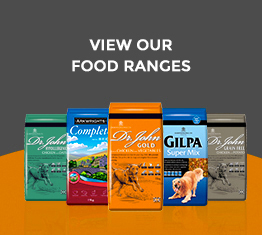Nutrition
What you feed your dog is important to you and to us. How nutritious the diet is will play a role in the health, condition and happiness of your dog and ultimately could determine the quality and length of life they enjoy.
INGREDIENTS
These are some of the typical ingredients we formulate into our dog foods. Not all ingredients are in every product, so just contact us if you need more information. Some raw materials are processed further than shown in the photographs before arriving with us so they are stable and suitable for use.
Whole grains provide a source of fibre as well as slow releasing energy throughout the day so they can help with controlling appetite and maintaining good levels of energy and stamina when needed. We use whole grains from local suppliers (where possible) in preference to flours or other derivatives to ensure dogs get all the benefits from these ingredients. These whole grains contain other useful compounds for instance beta glucans in oats and barley are thought to have a number of benefits in dogs with digestion, skin and joint health. There are also natural prebiotics present in whole grains which can support the growth of beneficial bacteria in the dog’s digestive system, for example fructans and arabinoxylans in wheat.
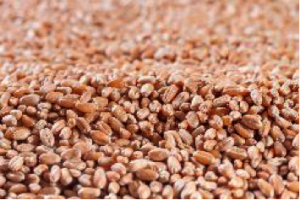
Wheat
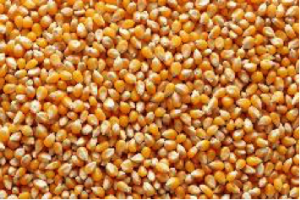
Corn (or Maize)
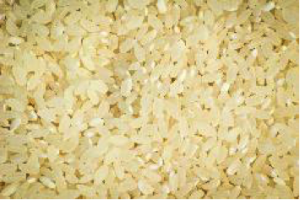
Rice
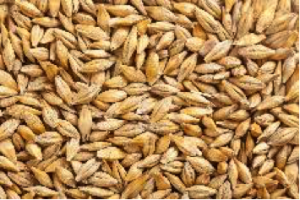
Barley
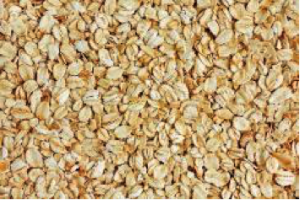
Oats (naked hulless oats/ groats)
Animal proteins are packed with beneficial high quality amino acids, essential for growth, condition and repair. We source all these ingredients from the UK and they include all meat cuts and organ meats and a small amount of bone (as it provides minerals in a bio-available form), all of which would be suitable for human consumption.
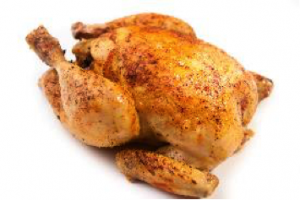
Specific blend of chicken and turkey
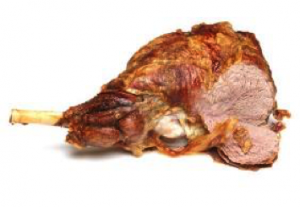
Lamb
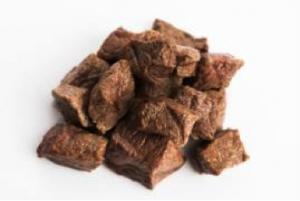
Specific blend of beef, pork & lamb
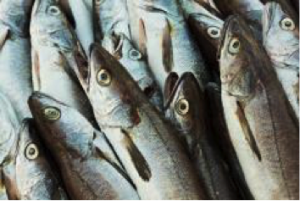
Cod and haddock from the UK waters
Other proteins are included to balance the amino acids profile of the diets, but some of these proteins have further benefits to dogs and can provide energy and vitamins for growing pups or performance dogs.
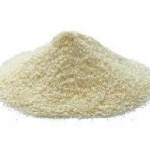
Whey
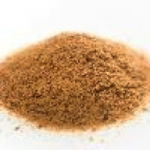
Yeast
Vegetables are included in many of our diets as they are a natural source of some nutrients. We use carrots, potatoes and peas as they contain carbohydrate, fibre, vitamin C and beta carotene.

Carrots
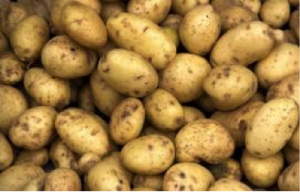
Potatoes
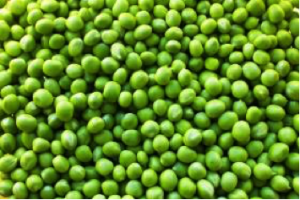
Peas
Of course our oils and fats come in much larger containers than these shown below, but we use a healthy blend of chicken fat (full of mono and polyunsaturated fats), linseed (rich in omega 6 and 9 and other monounsaturated fatty acids) and fish oils which are sourced from salmon and so are naturally high in omega 3 fatty acids.

All of our diets are complete and don’t require supplementation for normal health, however, in some of our formulas we add in a few special ingredients, just to help a bit more.
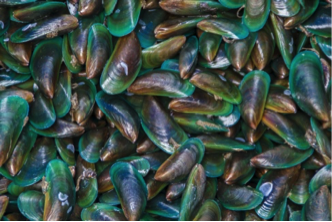
New Zealand green-lipped mussel extract is a natural source of glucosamine with EPA (Eicosapaentoic acid). These compounds can support joints and have an anti-inflammatory effect.

A botanical blend of dried sage, oregano, mint, rosemary, turmeric and ginger is also added to our joint complex.

Yucca schidigera (a desert plant species) contains saponins which have been found to remove odorous compounds from the digestive system in dogs, so reducing unwanted faecal odours.
Fructo-oligosaccharide (FOS) is a probiotic that provides nutrients to support the growth of beneficial bacteria in the gut which can then aid digestion.
Choline stabilised Orthosilicic acid (ChOSA) is a bio-available form of silicon that can help to support growing bones and repair.
Conjugated linoleic acid (CLA) is a beneficial fat with nutrient partitioning properties which aid the metabolism of fat rather than store it. This is of interest with dogs that need to lose weight or are prone to weight gain.
All Gilbertson and Page diets are guaranteed to be nutritionally complete and balanced and we have diets suitable for dogs at every stage of their lives and activity (working, performance, companion or retired). Alongside the main nutrients the formulas also contain all the essential vitamins and minerals dogs need for health, performance and metabolism.
SOURCING
All our ingredients are sourced from selected suppliers and tested by us to ensure that they meet our quality and nutritional standards. We support UK farmers and food production industries and aim for a minimum of 85% British ingredients in all our diets.
NUTRIENTS
The key nutrients (macronutrients) for your dog are protein, fat and carbohydrate. All of these provide energy as well as supporting compounds for growth, repair and energy reserves. However, your dog will also need some minor nutrients (micronutrients) in particular, vitamins and minerals which are needed for a number of processes and functions (e.g. Zinc is needed for skin and coat health and Selenium is an antioxidant that protects cells from oxidative damage).
It is essential that the correct levels of nutrients are present in the diet to ensure your dog is getting all he needs at the optimum level. Excessive nutrient levels can often be as detrimental to health as insufficient levels, for this reason, feeding a complete food guarantees that the right levels are provided every day to your dog.
DIGESTION
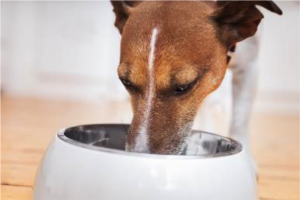 The way your dog digests the food is important. Starting from the top, the nuggets need to be a suitable size so that dogs can crunch them easily in order to help abrade the teeth and start the digestion process with the enzymes that are produced in the mouth. In the stomach digestive enzymes are produced to start breaking down the food to enable nutrients to be absorbed later in the digestive sequence. As the food moves through the small intestine proteins and fats will be absorbed. In the large intestine there is further breakdown of nutrients, in particular dietary fibres and carbohydrates. Finally in the colon water is removed and the last amounts of fat absorbed.
The way your dog digests the food is important. Starting from the top, the nuggets need to be a suitable size so that dogs can crunch them easily in order to help abrade the teeth and start the digestion process with the enzymes that are produced in the mouth. In the stomach digestive enzymes are produced to start breaking down the food to enable nutrients to be absorbed later in the digestive sequence. As the food moves through the small intestine proteins and fats will be absorbed. In the large intestine there is further breakdown of nutrients, in particular dietary fibres and carbohydrates. Finally in the colon water is removed and the last amounts of fat absorbed.
Various signs and symptoms will indicate if the diet is not suitable. For instance digestive odours and poor stool quality are normally quite noticeable early signs which may subside shortly. Constipation can be a sign of too little fibre, whilst diarrhoea may suggest that a particular ingredient is causing a digestive upset. Coat condition can suffer if the fat level and fatty acid balance is not suitable and food allergies can be indicated by skin conditions and ear problems.
When moving on to a new diet it is important to make the changeover slowly, in order to be sure that any change in nutrient level or ingredient is accepted well. Trial the new diet for up to a month before making a final decision on how it suits, as some changes will take this long to appear in the coat and general condition. Of course, there are some obvious symptoms that should never be ignored. If you see diarrhoea, vomiting, constipation or choking with your dog, then an immediate assessment of diet suitability is needed, and should these symptoms continue or worsen then a vet’s opinion will be needed.

